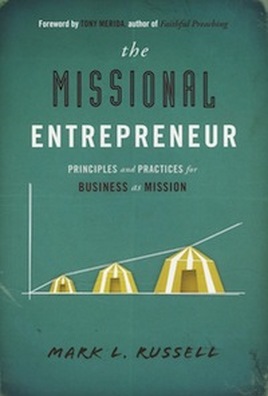|
We often praise individuals who are entirely themselves, pulling themselves up by their own bootstraps and achieving success. We are exhorted through scriptures like Psalms 139:14 to stand as individuals and focus on how God has created us. “ I praise you, for I am fearfully and wonderfully made.  It is true how God has uniquely crafted every person. But if we are imposing or separating ourselves from others through our "uniquely individual" perspective, how do we address "adapting" to engage the values and customs of the other cultures we are seeking to live and disciple among? In “The Missional Entrepreneur,” Mark Russell addresses a crucial topic regarding the necessity for missional entrepreneurs to understand and respect their new cultural context. In the past, many missionaries sent to the "lost " were Americans. As Americans, we have been raised in an “Individualistic, Universalistic, and Monochromatic” environment. In other words, Americans are taught and naturally bring to the mission field how to:
The cultural values Americans have been raised in are viewed differently in the cultures they are seeking to live and disciple among. For example, Asian and Latin American cultures often function as “Collective, Particularistic, and Polychromatic” socities. This challenges missional entrepreneurs to:
Understanding and abiding to these cultural adaptations is not denying your self or your heritage. “Contextualizing” is living out the calling to serve as a relational and personal witness, to give up our self, and to love others first in a new set of cultural values. Paul describes his journey as: "For though I am free from all, I have made myself a servant to all, that I might win more of them. To the Jews I became as a Jew, in order to win Jews. To those under the law I became as one under the law (though not being myself under the law) that I might win those under the law. To those outside the law I became as one outside the law (not being outside the law of God but under the law of Christ) that I might win those outside the law. To the weak I became weak, that I might win the weak. I have become all things to all people, that by all means I might save some. I do it all for the sake of the gospel, that I may share with them in its blessings. Every missional entrepreneur will face the challenge to remain comfortable and stagnant in their own cultural context. Yet, remaining unwilling to see the world through a different perspective, or understand the customs of different cultures, will weaken our ability to see the gospel of Jesus and his Kingdom advance through generations of laborers living and discipling among the lost. - GEN Desk Director Consider Foreign to Familiar by Sarah Lanier for further reading on cultures, adaptation, and contextualization.
0 Comments
Your comment will be posted after it is approved.
Leave a Reply. |
Categories
All
Archives
March 2020
|
 RSS Feed
RSS Feed
